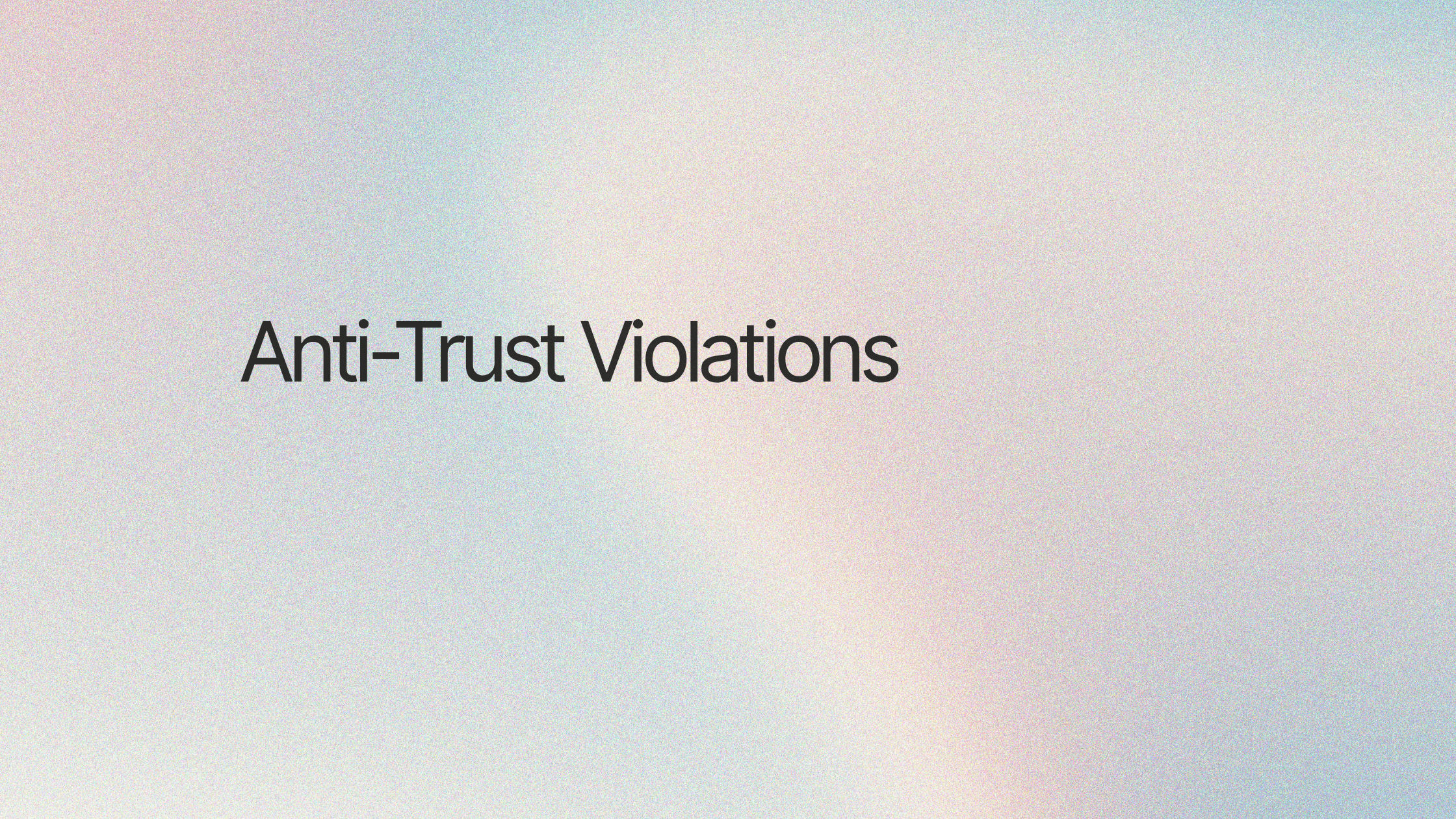Abstract
Anti-trust laws are crucial in maintaining competitive markets and preventing monopolistic practices that harm consumers and businesses. This blog explores anti-trust violations, their legal framework, and how AI-powered legal research tools like LawSimpl.ai streamline case law analysis, research, and document summarization. With increasing regulatory scrutiny, businesses must leverage legal AI to ensure compliance efficiently.
Introduction
Competition fosters innovation, fair pricing, and consumer choice. However, anti-competitive practices threaten market integrity. Anti-trust laws prevent monopolization, price-fixing, and other unfair trade tactics. This blog highlights key violations, legal consequences, and the role of AI-driven legal research tools in compliance.
Common Anti-Trust Violations
1. Price Fixing
Competitors collude to set prices rather than allowing market forces to determine them.
Example: Tech firms secretly agreeing on minimum pricing for software services.
2. Market Allocation
Competitors divide markets to avoid direct competition.
Example: Telecom providers agreeing not to enter each other’s regions.
3. Monopolization & Abuse of Dominance
A dominant company engages in exclusionary tactics to stifle competition.
Example: A tech giant blocking third-party apps on its platform.
4. Exclusive Dealing & Tying Arrangements
Companies impose conditions forcing customers to buy additional products.
Example: A software firm bundling tools to prevent standalone purchases.
5. Anti-Competitive Mergers & Acquisitions
Corporations acquire competitors to eliminate competition.
Example: A pharmaceutical firm buying a rival to control drug pricing.
Legal Consequences of Anti-Trust Violations
- Heavy Fines: Multi-billion-dollar penalties for offenders.
- Lawsuits & Legal Actions: Regulatory bodies and competitors can sue violators.
- Reputational Harm: Loss of consumer trust and market credibility.
- Operational Restrictions: Regulatory agencies may limit business activities.
The Role of Legal AI in Anti-Trust Compliance
AI-powered legal research tools like LawSimpl.ai offer efficient solutions to navigate complex anti-trust regulations. These tools enhance compliance by:
- Automating Case Law Analysis: Quickly finding relevant case laws and precedents.
- Summarizing Lengthy Documents: Extracting key insights from extensive legal texts in seconds.
- Real-Time Compliance Monitoring: Detecting potential anti-trust risks in contracts and business policies.
- Legal Research Optimization: Providing instant access to regulatory updates and historical rulings.
Conclusion
Anti-trust laws protect market fairness and prevent monopolistic behavior. To avoid violations, businesses must proactively monitor compliance. AI-driven legal research tools like LawSimpl.ai simplify case law analysis, research, and document review, ensuring legal accuracy and efficiency. Embracing legal AI is essential for staying ahead in today’s regulatory landscape.
